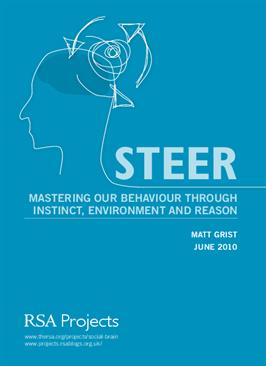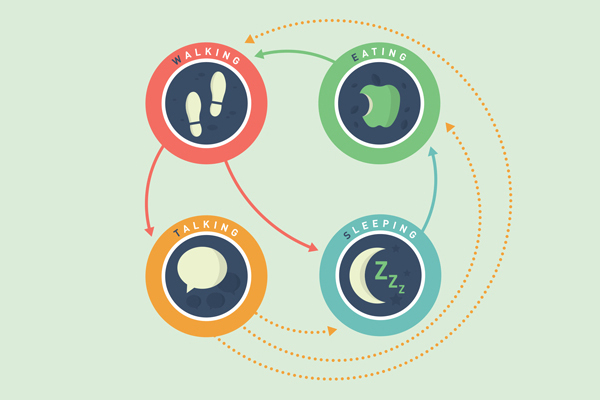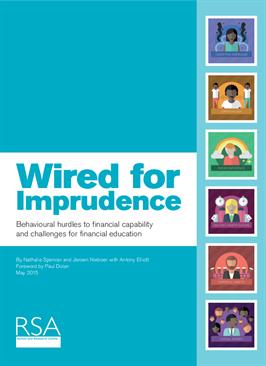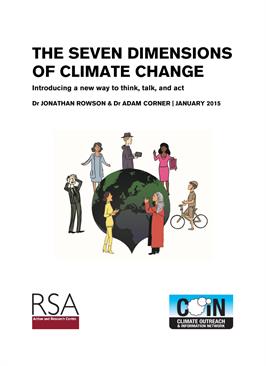Steer: Mastering our Behaviour through Instinct, Environment and Reason represents the second stage of the RSA's project. It argues that helping people learn about how they make judgements and form habits can be a more empowering way of encouraging positive behaviour change than relying on passive "nudging" at one extreme, or rational debate at the the other.
Drawing on a range of research from several disciplines, Steer argues that this model of mindful, self-directed, and holistic behavioural change has been overlooked in much of the recent policy debates on the subject. It enables people to appraise situations, and make judgements about when they should trust, or be wary of, their gut instincts, rational judgements, or environmental influences.
Although the research was qualitative and exploratory, it suggests that in becoming more aware of how their brains operate – including the limits to conscious "controlled" decision making – people can learn to Steer their behaviour through goal-setting, repeated practice and changing the context within which they make choices.
Steer concludes that only by taking a "holistic reflexive approach" to brain science can we improve the way we navigate our automatic, controlled and environmental impulses.The project is looking to continue and expand the work to include a wider range of participants from a range of professional contexts (e.g. social work, policing, banking) in which instinctive, rational and environmentally-induced decision making is critical for success.
pdf 1.2 MB
Contributors

Related reports
-
Easier said than done - why we struggle with healthy behaviours and what to do about it
Many of us know what we should be doing to live healthily, yet many of us struggle to actually actively manage our health. This report asks why and what we can do about it.
-
Wired for imprudence
Natural human characteristics can make it hard to manage our money well. This report identifies six of these behavioural hurdles to financial capability, and explores what this means for financial education.
-
The Seven Dimensions of Climate Change: Introducing a new way to think, talk, and act
Our report suggests that climate change is not about 'the environment', it's a problem with seven main dimensions: Science, Behaviour, Technology, Culture, Law, Economy and Democracy.




Be the first to write a comment
Comments
Please login to post a comment or reply
Don't have an account? Click here to register.